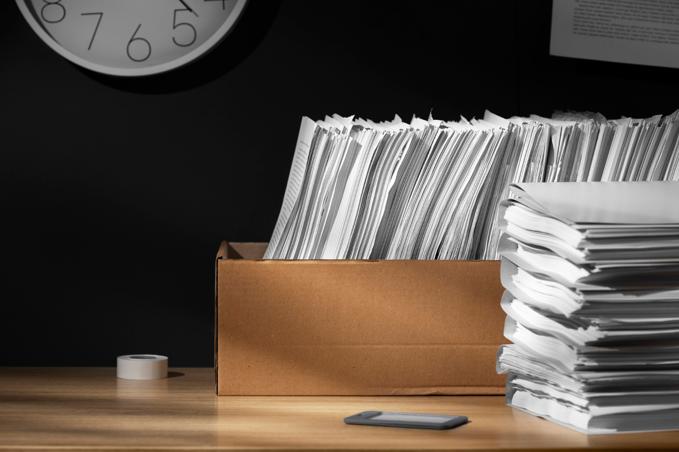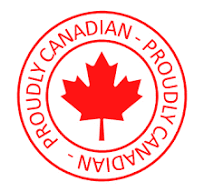Friday, August 9, 2024 4:06 pm, Posted by Absolute Destruction

In today's digital age, maintaining a secure and efficient document management system is crucial for both individuals and businesses. Whether you're managing sensitive business documents or personal records, knowing what to keep and what to shred can make all the difference in protecting your information and maintaining a clutter-free environment.
Absolute Destruction, a leading document and data destruction company in Southern Ontario, offers reliable shredding services that ensure your sensitive information is disposed of securely and sustainably. In this article, we will guide you through the essentials of conducting a document audit, helping you decide what to keep and what to shred.
Understanding Document Audits
A document audit is a systematic review of your physical and digital records to determine which documents should be retained, which should be archived, and which should be securely destroyed. This process not only helps in organizing your files but also in complying with legal requirements and reducing the risk of data breaches.
For businesses, regular document audits can streamline operations, enhance compliance with industry regulations, and protect against potential security threats. Regular audits also help in identifying inefficiencies in document handling and storage, which can lead to cost savings. For individuals, it means keeping personal information safe from identity theft and ensuring that important documents are easily accessible when needed.
Document audits should be a routine part of your organizational strategy. They help in establishing a culture of compliance and security, which is vital in today's data-driven world. With increasing regulations around data privacy and security, businesses cannot afford to be lax in their document management practices.
What to Keep
When conducting a document audit, it's essential to understand the types of documents that must be retained. These typically include:
- Legal Requirements: Documents such as tax records, employment records, contracts, and any documents that are required by law to be kept for a certain period. Different industries have specific regulations dictating the retention period for various types of documents. For instance, the IRS recommends keeping tax returns and supporting documents for at least seven years.
- Business Necessities: Financial statements, audit reports, insurance documents, and other records critical to your business operations. These documents not only serve legal and regulatory purposes but also provide a historical record of your business activities.
- Personal Documents: Birth certificates, marriage certificates, wills, and other personal records that need to be preserved for future reference. These documents are often required for legal proceedings, claiming benefits, or verifying identity.
It's crucial to have a clear understanding of both the legal requirements and the practical needs of your business or personal circumstances when determining what to keep. A comprehensive document retention policy can guide you in making these decisions and ensure compliance with all applicable regulations.
What to Shred
On the other hand, identifying documents that are no longer needed is equally important. Shredding unneeded company documents not only frees up valuable space but also protects sensitive information from falling into the wrong hands. Common types of documents to shred include:
- Outdated Financial Records: Documents like old bank statements, credit card statements, and financial reports that are no longer required for tax or legal purposes.
- Old Customer Data: Customer records that are no longer active or relevant, including contact information, transaction history, and personal data.
- Expired Contracts and Agreements: Contracts that have been fulfilled or are no longer in effect.
- Redundant Copies of Documents: Multiple copies of the same document that are no longer necessary.
- Junk Mail Containing Personal Information: Any unsolicited mail that includes sensitive personal information.
Shredding these documents is a crucial step in protecting your organization from data breaches and identity theft. By employing professional shredding services, you ensure that all confidential information is destroyed beyond recovery, maintaining your compliance with data protection regulations.

How to Conduct a Document Audit
Conducting a thorough document audit involves several steps:
- Inventory Your Documents: List all the documents you have, both physical and digital. This initial step gives you a clear understanding of the volume and types of documents you are dealing with.
- Categorize Documents: Separate them into categories such as financial, legal, personal, and operational. This helps in identifying documents that require longer retention periods versus those that can be safely discarded.
- Determine Retention Periods: Identify how long each type of document needs to be kept based on legal requirements and business needs. This step is crucial for compliance and ensures that you do not prematurely dispose of important documents.
- Decide What to Shred: Identify documents that have surpassed their retention periods or are no longer needed. Implement a shredding schedule to regularly dispose of these documents.
- Implement Shredding Practices: Use a professional shredding service like Absolute Destruction to ensure secure and compliant destruction of sensitive documents. This guarantees that all shredded materials are disposed of responsibly and securely.
If you're preparing for an office relocation, conducting a document audit can significantly reduce the amount of paperwork you need to move, ensuring a smoother and more organized transition. It also helps in identifying documents that need to be digitized, making them easier to access and manage in your new location.
Security Considerations
Protecting sensitive information is paramount during a document audit. Businesses face numerous security threats, including data breaches and identity theft, which can have severe consequences. By implementing reliable shredding services, you can mitigate these risks and ensure that confidential information is destroyed securely.
Absolute Destruction adheres to the highest standards of security and compliance, offering both on-site and off-site shredding services to meet your needs. As a member of the National Association for Information Destruction (NAID), their practices are certified and trusted. This ensures that all shredded materials are handled with the utmost care, protecting you from security threats for businesses.
Environmental Impact
Sustainability is a key concern for many organizations today. Absolute Destruction is committed to reducing its carbon footprint by employing eco-friendly shredding practices. By recycling shredded paper and responsibly disposing of electronic waste, they help minimize environmental impact while protecting your information.
Using sustainable shredding services not only helps in reducing your environmental footprint but also enhances your company's reputation. Customers and stakeholders are increasingly looking for businesses that prioritize sustainability. By choosing Absolute Destruction, you are demonstrating your commitment to both security and environmental responsibility.
Tips for Home Offices
For those working from home, maintaining an organized and secure home office is essential. Here are some tips for cleaning out your home office:
- Sort Through Documents: Regularly review and sort your documents to identify what needs to be kept and what can be shredded. Establish a routine schedule for this task to ensure that it becomes a regular part of your home office management.
- Use Secure Storage: Store important documents in a secure, locked location to prevent unauthorized access. Invest in a good-quality filing cabinet or safe for storing sensitive documents.
- Schedule Regular Audits: Make document audits a routine part of your home office management to keep your records up-to-date and secure. This practice helps in identifying documents that need to be digitized or archived, ensuring that your home office remains clutter-free and organized.
To summarize, a well-conducted document audit is essential for both businesses and individuals to ensure the security and efficiency of their document management systems. By knowing what to keep and what to shred, you can protect sensitive information, comply with legal requirements, and maintain an organized workspace. Absolute Destruction offers the expertise and reliable shredding services needed to help you achieve these goals, providing peace of mind and contributing to a greener planet.
Take the first step towards better document management today by scheduling a document audit with Absolute Destruction. Your security and the environment will thank you.

